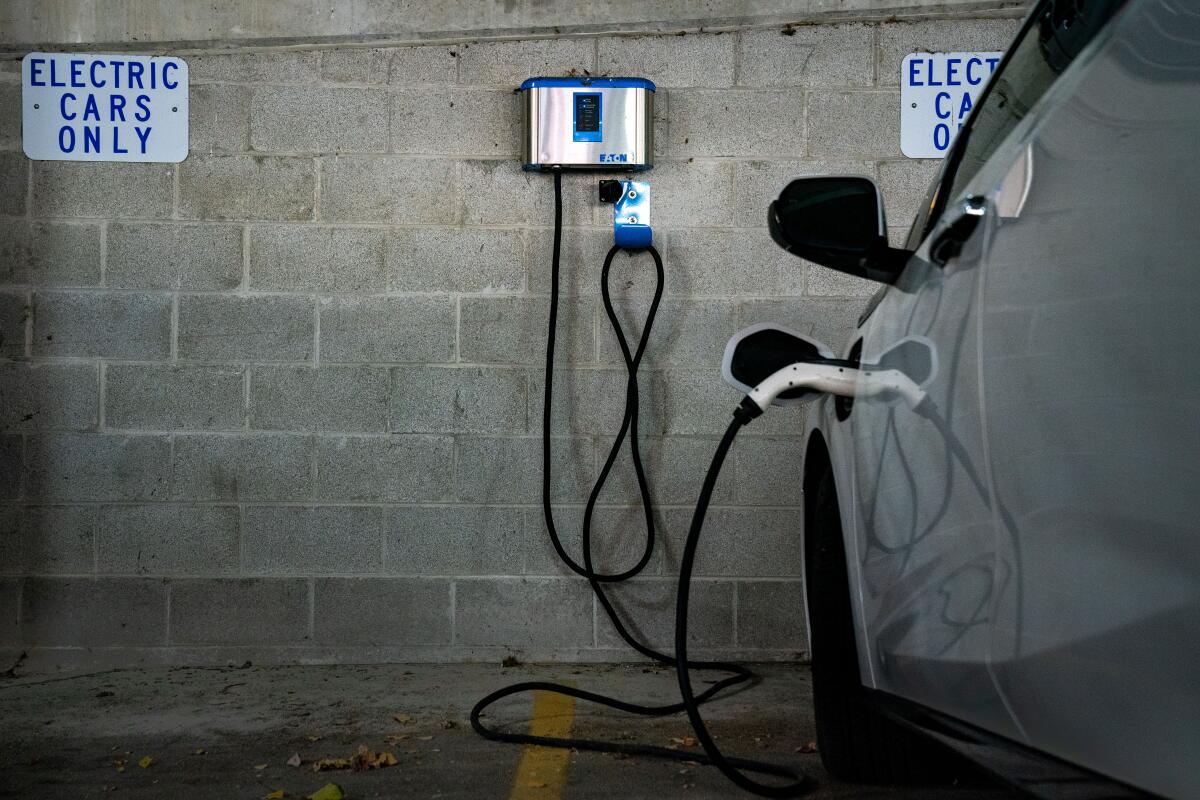Letters to the Editor: Don’t drain my EV battery in a blackout. I paid for that electricity

- Share via
To the editor: The idea of vehicle-to-grid transfer of electricity as a way to prevent or shorten blackouts has been around for some time now. While this may sound like a good idea, in practice, there are too many obstacles to make this happen.
I have been driving electric vehicles for more than 10 years. I consider the electricity stored in my car’s battery the same way I think of the gas in my other car’s tank. And like that gas in my tank, I paid for the electricity. It’s mine.
I keep the battery charged to 80% or better, just in case I may need to take off in the middle of the night for the hospital or if there is some other emergency. I don’t want to get in my car and find out that Southern California Edison had to drain my battery so they could power my neighbor’s TV.
I have never been asked by the Chevron station on the corner to bring back the gas in my tank so they could sell it to someone else because they didn’t get a tanker delivery.
The answer to any future electricity shortfall is not to install expensive switching equipment at every house with an electric vehicle. The true solution is investment in renewables.
Daniel Bateman, Diamond Bar
..
To the editor: Your editorial on EV-to-grid power reminded me that my daughter and son-in law have for years worked to regulate their electricity usage.
My son-in-law has been taking Metro from Long Beach to L.A. since 2010. They’ve also bought EVs, first a Volt then a Bolt, and they installed a home charging station.
Most recently, they not only installed solar panels but also added a battery storage system. So, when their street recently lost power, there was enough electricity between the California sun and their batteries to keep the lights on.
Each of us can do our part by using non-polluting energy. Walk, ride or share rides to work, turn down the thermostat, consolidate trips, and just be aware of the kind of energy you use.
Colleen Rose Triesch, Long Beach





